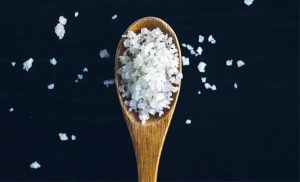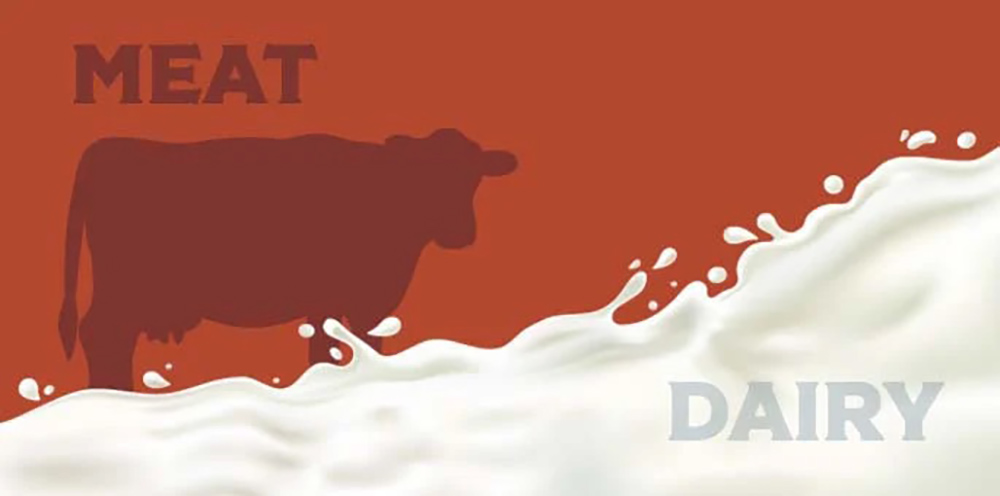By: Menachem Posner
- Kosher Means “Fit”
The Hebrew word kosher literally means “fit.” The laws of kosher define the foods that are fit for consumption for a Jew (as well as the ritual items or procedures that are valid and proper), but the word has come to refer more broadly to anything that is “above board” or “legit.” The general rubric of kosher contains several requirements the Torah specifies for the food Jewish people are to eat.
- 5% of the Torah’s Laws Are About Kosher

Shortly after the Exodus from Egypt, G d communicated the mitzvot, commandments for the Jewish people to follow. Of the 613 mitzvot, approximately 30 are directly related to the laws surrounding the preparation and consumption of kosher food.1
- Only Certain Animals Are kosher

Among land animals, only those that have split hooves and ruminate (chew their cud) may be eaten. These include cows, sheep, deer, and goats.

Among sea creatures, only fish that have fins and scales (which can be easily removed by hand) are kosher. These include salmon, whitefish, and tilapia.
The Torah provides a list of non-kosher birds. All others are kosher. Since we cannot know for certain which birds the Torah’s list refers to, however, we only consume birds traditionally known to be kosher, including chicken, goose, duck, turkey, and dove.
- There Are Some Kosher Insects
All shellfish, amphibians, reptiles, and insects are not kosher. The single exception is a group of four species of locusts singled out by the Torah.2 In practice, since it is difficult to know which species the Torah refers to, the vast majority of Jewish people do not eat locusts of any kind. The exception is certain communities (mostly Yemenite), which have carefully preserved traditions regarding which kinds of locusts may be eaten.
- Bees Are Not Kosher, But Pure Honey Is
According to halachah, a derivative of a non-kosher animal is considered impure, so the obvious question arises: How can kosher honey be produced by the non-kosher bee?
Well, honey is actually not produced by a bee’s body. The bees transfer the floral nectar through their mouths only as temporary “storage”3 until the sugar levels reach 80 percent, and then they store it in the honeycomb. Bees’ honey indeed represents a unique kashrut phenomenon!
- Kosher Meat Is Slaughtered in a Special Way
The Torah tells us that meat must be slaughtered “in the way that I have commanded you.”4 What is this way? Tradition, dating back to Moses himself, tells us that the animals must be killed by having their trachea and esophagus slit in a sweeping motion with a perfectly smooth, sharp knife. Performed by a specially trained slaughterer (shochet), this is known as shechitah.
- Blood Is Not Kosher
The blood of mammals and fowl is utterly forbidden for consumption according to the Torah.5 Within 72 hours of slaughter, all extractable blood is drained from the meat by a special soaking and salting process, known as koshering. (Today, most kosher meat is sold with the blood already removed.)
The liver, which has an especially high blood content, needs to undergo a special broiling process before it can be eaten.
- Kosher Salt Is No More Kosher Than Table Salt

Blood is removed from kosher meat through soaking it and then coating it with relatively coarse grains of salt, which are then rinsed away (read the full procedure here). Technically called “koshering salt,” this salt is commonly labeled as “kosher salt.” However, it is essentially no more or less kosher than any other salt on the market. Salt is a mineral and pure salt is therefore always kosher. Some brands of salt have a kosher symbol on the package, and that way you know that a reliable kosher certification agency is checking to make sure that nothing else gets mixed into the salt and that it’s 100% kosher.
- Meat Is Never Mixed With Milk
The Torah tells us not to cook, eat, or even derive benefit from meat cooked with milk. In practice, this means that kosher food comes in three genres: 1) meat (including fowl), 2) dairy, and 3) parve, things which are neither meat nor dairy and may be enjoyed with either one of them. These include fish, eggs, nuts, and fruits and vegetables.
After eating meat, it is proper to wait six hours (the standard time between one meal and the next) before having dairy. The time to wait after dairy varies by custom and the specific kind of dairy eaten.
- Fish Gets Special Treatment
Technically fish is parve and may be enjoyed with meat or milk. But the Talmud6 warns us not to eat fish with meat, asserting that the combination is unhealthy. This is mentioned in the Code of Jewish Law7 with the admonition that health concerns are to be treated with even greater gravity than ritual laws.8 So the accepted practice is to change dishes and rinse one’s mouth between fish and meat courses.
- The Kosher Kitchen Has Two (or Three) Sets of Dishes
We try to keep even the smallest traces of dairy out of meat, and the smallest bits of meat away from dairy. For this reason, a kosher kitchen has a completely separate sets of dishes, cookware, and other utensils for meat and dairy. Many also have parve dishes, on which they can prepare food that will later be served with either meat or dairy.
In the event of a mix-up, the offending substance can sometimes be purged from the dish by applying extreme heat.
- Certifying Agencies Do Much of the Work for You
In the controlled environment of your own kitchen, you can ensure that only kosher ingredients are used and that meat and dairy are kept separate. But how do you know what happens in factories or restaurants? Enter the kosher certifying agency, often known as a hashgachah (“supervision”).
They comb through ingredient lists, observe factory conditions, and make periodic (or more than periodic) inspections to make sure that the food produced is fit for the kosher consumer.
The agencies then provide a certification known as a hechsher.
All told, there are as many as 1,500 kosher certifying bodies worldwide. Some represent an individual rabbi, and others are international organizations. The five largest agencies account for nearly 80% of the certification in the US. They are the OU, OK, Star-K, Kof-K and cRc. 9
- A Mashgiach Does All Kinds of Checking
The representative of a supervising agency who inspects and oversees is known as a mashgiach (“watcher”). Some mashgichim spend their weeks on the road, visiting remote plants and factories. Others may be permanently stationed in a specific restaurant or food establishment. A restaurant or catering mashgiach may spend a lot of time checking lettuce and other vegetables to ensure that they are free of bugs (which are not kosher).
- A “K” May Not Indicate Kosher
When a product bears the seal (hechsher) of a reputable agency, you are relying on the agency, who attest that the product is kosher according to their standards. The presence of a “K” on a product just means that someone out there believes the product to be kosher. Who is that someone? It may be a reliable Orthodox rabbi, or it may just be the company’s marketing department.
The lesson: Do your homework and only purchase food with a reliable kosher seal or guaranteed to be kosher by someone you trust to be in the know. (To be Continued Next Week)




